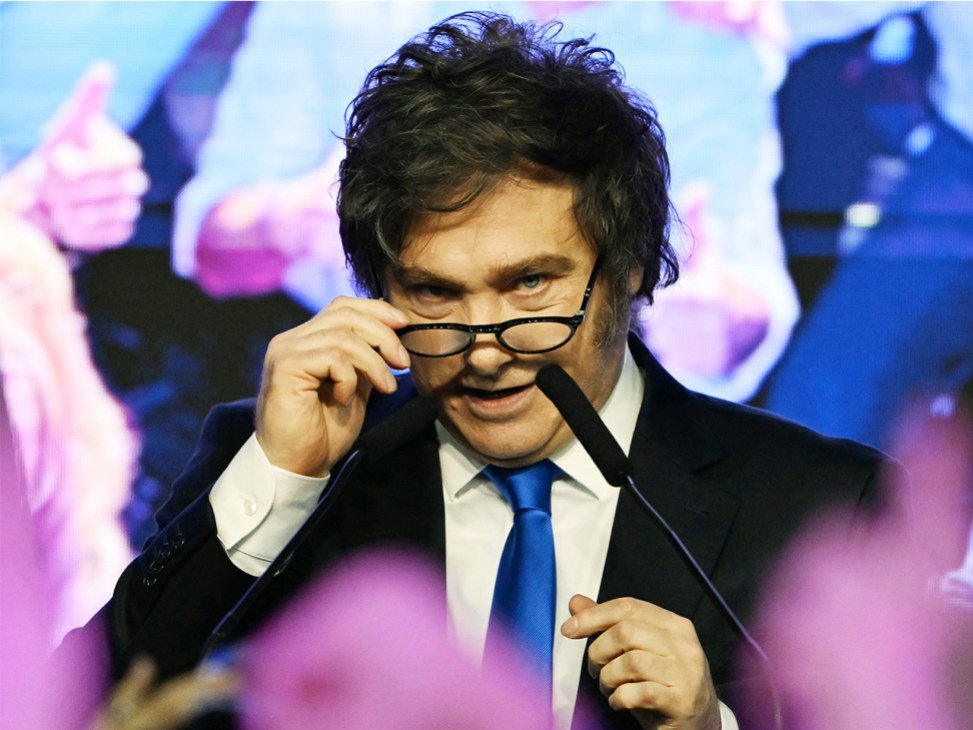Argentina’s Milei got this far with a chainsaw – now he must proceed with a chisel
Argentina has given its president, Javier Milei, something that he has lacked since day one: the ability to turn his reformist agenda into law. After two years of governing with less than 15 per cent of congressional support, the libertarian firebrand won a surprising midterm landslide. The decisive vote saw Milei’s La Libertad Avanza (LLA) and its allies in the centre-right coalition take around 40 per cent of the lower chamber and a third of the Senate. While still short of a majority, Milei is now strong enough to negotiate. For the first time, he has the muscle to pursue his mandate and gain momentum. But to do that, Milei must move beyond theatrics and build alliances. The chainsaw got him this far. Now he needs a chisel.
At the start of Milei’s term, his shock therapy – sweeping spending cuts, deregulation and a relentless push to shrink the state – delivered major wins, including the country’s first fiscal surplus in almost 15 years. It was a decent enough start but society continued to struggle. Argentine politics, however, never ceases to surprise. Only weeks ago, Milei’s approval was sinking, the peso was plummeting and a Peronist landslide in a local election suggested that Milei’s government was in freefall. Markets asked the question that haunts every Argentine reform experiment: Can it last?

The greatest uncertainty in Milei’s programme was not so much economics – it was politics and social tolerance. Fiscal adjustment always hurts. The question was whether Argentines would endure the pain long enough to see the benefits – the midterm results suggest that the patients are responding well to treatment.
But banning the money-printing that fuels inflation is not enough to overturn decades of dysfunction. The country’s economy has barely grown since the early 2010s, leaving living standards depressed and frustration mounting. It needs policies that attract investment, boost productivity and lift wages out of stagnation. Without deep reform, the country risks remaining trapped in the same boom-bust cycle that eroded faith in the political establishment – and helped to carry Milei from the TV studio to the presidency.
The president appears to recognise the need for a political shift, calling the elections an “inflection point”. On Sunday night, he left the leather jacket at home and thanked the allies that he once mocked – a small signal that he knows his style must mature. Recent months have shown how quickly things can go south in a volatile market such as this. Argentina has been here before: optimism flickering, then smothered by politics. Market-friendly president Mauricio Macri won midterms by a similar margin in 2017 – but crashed out of office two years later after a financial collapse.
The question is not whether Milei has a mandate. It is whether he can use it before it evaporates. To do so, the president must remain economically daring while becoming pragmatic in the art of negotiation and showing voters that sacrifice, savvy and skill can lead to stability. If he can learn to govern effectively, Argentina might finally break its cycle of false starts.
David Feliba is a Buenos Aires-based journalist.
Read next: Milei wants to use economic optimism to snatch back Argentines’ “mattress money”



